
Whole Foods Recipes
The foods we choose to put into our body should be helping us live more vibrant and productive lives, but for many, they are the leading contributor to chronic disease.
Many people know "what" to do to be healthy, but HOW do you do it? One of the best ways we have found is to show people how we eat. This customizable, online, whole foods cookbook features healthy, affordable, great-tasting, easy-to-make recipes. We hope you enjoy these recipes and encourage you to share them with your family and friends!


3 Ingredient Baked Oats
It doesn't get simpler than oatmeal, your favorite plant-based milk, and a ripe banana! This 3 Ingredient Baked Oats is the perfect breakfast to satisfy someone on-the-go or looking to add an easy prepped meal into their routine.
Breakfast Lunch Snack Dessert Flexitarian Mind Pescatarian Therapeutic Lifestyle Changes Vegan Vegetarian Gluten Soy


African Peanut Chicken
This extremely flavorful dish is one of our family's favorites.
Appetizer Dinner Main Dish Dash Flexitarian Mediterranean Mind Paleotarian Therapeutic Lifestyle Changes Dairy Peanut


Almost Raw Vegan Nut Cheese
A great alternative to the traditional cheese ball for those trying to eliminate dairy.
Appetizer Snack Condiment Side Dish Spread/Sauce Dash Flexitarian Mediterranean Mind Paleotarian Pescatarian Raw Therapeutic Lifestyle Changes Vegan Vegetarian


Apple Cinnamon Juice
Refreshing with a sweet and woody flavor, this juice is easy to make and is perfect for any occasion.
Appetizer Breakfast Snack Drink Dash Flexitarian Fruitarian Mediterranean Mind Paleotarian Pescatarian Raw Therapeutic Lifestyle Changes Vegan Vegetarian


Arame Salad
This RAW foods recipe has lots of flavor, and brings many great antioxidents together.
Appetizer Dinner Lunch Salad Dash Flexitarian Mediterranean Mind Pescatarian Raw Therapeutic Lifestyle Changes Vegan Vegetarian Soy


Asian Sesame Spinach
I have to admit when I started this recipe, I didn't believe that veggies could be RAW but taste cooked. Boy, I was wrong. This dish impressed my entire extended family, and when put on rice can turn this side dish into a quick and easy main course.
Appetizer Dinner Lunch Main Dish Salad Side Dish Dash Flexitarian Mediterranean Mind Paleotarian Pescatarian Raw Therapeutic Lifestyle Changes Vegan Vegetarian Soy


Autumn Vanilla Spice Drink
This is a great drink that that tastes as good as it looks! Not sure how to use your new protein shake? Try some familiar spices to liven things up.
Breakfast Snack Drink Dash Flexitarian Mediterranean Mind Pescatarian Raw Therapeutic Lifestyle Changes Vegan Vegetarian Dairy Gluten


Avocado and Coconut Ice Cream
A great refreshing treat that is gluten and dairy free, bringing only good fats to the dessert table.
Snack Dessert Dash Flexitarian Fruitarian Mediterranean Mind Paleotarian Pescatarian Raw Therapeutic Lifestyle Changes Vegan Vegetarian


Avocado Dressing
A good source of healthy, unsaturated fats and taste great!
Appetizer Snack Salad Dressing Dash Flexitarian Fruitarian Mediterranean Mind Paleotarian Pescatarian Raw Therapeutic Lifestyle Changes Vegan Vegetarian


Avocado Mousse
Try this tasty alternative that is gluten and dairy free.
Snack Dessert Dash Flexitarian Fruitarian Mediterranean Mind Pescatarian Raw Therapeutic Lifestyle Changes Vegan Vegetarian


Baked Potato Bar
Make your dinner simple tonight, just let everyone dress their potatoes.
Dinner Lunch Main Dish Side Dish Ketogenic Flexitarian Pescatarian Dairy


Balsamic Waldorf Salad
Enjoy this light, fruity salad as a main course, or even as a dessert.
Dinner Lunch Snack Dessert Salad Side Dish Dash Flexitarian Mediterranean Mind Paleotarian Pescatarian Raw Therapeutic Lifestyle Changes Vegan Vegetarian Tree Nut


Banana Milk
Use on granola for a great alternative to traditional milk.
Breakfast Snack Condiment Drink Dash Flexitarian Fruitarian Mediterranean Mind Paleotarian Pescatarian Raw Therapeutic Lifestyle Changes Vegan Vegetarian


Banana Muffins
Start your day with some delicious, good-for-you banana muffins.
Breakfast Snack Dessert Side Dish Flexitarian Mediterranean Mind Pescatarian Therapeutic Lifestyle Changes Vegan Vegetarian Dairy Gluten Soy Tree Nut


Basil Tomato Mozzarella
This makes for an elegant, tasty snack that everyone will love!
Appetizer Snack Salad Side Dish Dash Flexitarian Mind Pescatarian Raw Therapeutic Lifestyle Changes Vegetarian Dairy


Beet Juice
Packed with antioxidants and nitrates, beet juice is easy to make and provides numerous health benefits.
Appetizer Breakfast Drink Dash Flexitarian Fruitarian Mediterranean Mind Paleotarian Pescatarian Raw Therapeutic Lifestyle Changes Vegan Vegetarian


Best Guacamole EVER
This is a very simple recipe I use whenever we have a fiesta. It's loaded with good fats, and leaves.
Appetizer Snack Condiment Salad Dressing Side Dish Spread/Sauce Dash Flexitarian Mediterranean Mind Paleotarian Pescatarian Raw Therapeutic Lifestyle Changes Vegan Vegetarian


Blueberry Lemon Bars
Wow your dinner guests with this easy recipe combining two great anti oxidants- lemon and blueberry.
Appetizer Snack Dessert Dash Flexitarian Fruitarian Mediterranean Mind Paleotarian Pescatarian Raw Therapeutic Lifestyle Changes Vegan Vegetarian


Cacao Drink
Chocolate milk anyone?
Breakfast Snack Drink Dash Flexitarian Fruitarian Mediterranean Mind Paleotarian Pescatarian Raw Therapeutic Lifestyle Changes Vegan Vegetarian


Cajun Toasted Assorted Nuts
Great snack that satisfies the need for a salty, crunchy snack
Appetizer Snack Side Dish Dash Flexitarian Mediterranean Mind Pescatarian Therapeutic Lifestyle Changes Vegetarian Dairy Tree Nut


Carrot Juice
Fresh carrot juice is simple to make, loaded with healthy nutrients, has a beautiful orange color, and a light, refreshing taste.
Appetizer Breakfast Snack Drink Dash Flexitarian Fruitarian Mediterranean Mind Paleotarian Pescatarian Raw Therapeutic Lifestyle Changes Vegan Vegetarian


Cashew Cheesecake Filling
This is so good, I'm not allowed to visit my extended family without brining it along.
Dessert Dash Flexitarian Mediterranean Mind Pescatarian Raw Therapeutic Lifestyle Changes Vegan Vegetarian Tree Nut


Cashew Cream
Traditional peanut butter move out of the way
Appetizer Dash Ketogenic Flexitarian Mediterranean Mind Paleotarian Pescatarian Raw Therapeutic Lifestyle Changes Vegan Vegetarian Soy


Chewy Curry Vegetables
A great vegetarian main dish with lots of flavor, and packed with antioxidants. Put on a bed of basmati rice to complete the meal.
Dinner Lunch Main Dish Dash Flexitarian Mediterranean Mind Paleotarian Pescatarian Therapeutic Lifestyle Changes Vegan Vegetarian


Chicken and Potatoes
Sometimes, we just want an old standby that is easy to prepare, and deeply satifying. Try this recipe out, and you'll never look back.
Dinner Lunch Main Dish Dash Flexitarian Mediterranean Mind Paleotarian Therapeutic Lifestyle Changes


Chicken Pecan Salad
We love this salad, as a main dish, especially in summer when we can get fresh, local strawberries.
Appetizer Dinner Lunch Snack Main Dish Salad Side Dish Dash Flexitarian Mediterranean Mind Pescatarian Therapeutic Lifestyle Changes Vegetarian Dairy Tree Nut


Chili
This is a standard in our house. Keep it in the fridge for lunch or use in the baked potato bar
Dinner Lunch Main Dish Side Dish Soup Dash Flexitarian Mediterranean Mind Paleotarian Therapeutic Lifestyle Changes


Chocolate Almond Delightful
Chocolate, almonds, what more needs to be said?
Breakfast Snack Drink Dash Flexitarian Mind Pescatarian Raw Therapeutic Lifestyle Changes Vegan Vegetarian Gluten Tree Nut


Chocolate Banana Bread
This delicious vegan Chocolate Banana Bread is a crowd pleaser in our home! It makes for a wonderful breakfast or snack, with just a little chocolate to give you some sweet satisfaction.
Breakfast Snack Dessert Flexitarian Pescatarian Therapeutic Lifestyle Changes Vegan Vegetarian Gluten Sesame
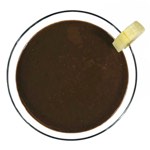

Chocolate Banana Shake
Chocolate Banana is a decadent blended shake with flavors of rich natural coco, banana and notes of coconut and spice featuring NuMedica Power Greens Chocolate, Total Vegan Chocolate Delight and MCT Oil USP.
Breakfast Snack Drink Dash Flexitarian Mediterranean Mind Pescatarian Therapeutic Lifestyle Changes Vegetarian Gluten


Chocolate Spelt Cup Cake Frosting
Can someone say gluten and dairy free birthday party?
Snack Dessert Flexitarian Pescatarian Vegetarian Dairy Gluten Tree Nut


Cinnamon Sweet Potatoes
These sweet potatoes are a great addition to a Thanksgiving meal!
Dinner Lunch Dessert Side Dish Dash Flexitarian Mediterranean Mind Pescatarian Therapeutic Lifestyle Changes Vegetarian Dairy


Citrus Vinaigrette
This dressing adds a great taste to any salad.
Salad Dressing Spread/Sauce Dash Flexitarian Fruitarian Mediterranean Mind Paleotarian Pescatarian Raw Therapeutic Lifestyle Changes Vegan Vegetarian


Coconut Chai
Restorative and relaxing drink that smells divine.
Appetizer Breakfast Snack Drink Dash Flexitarian Fruitarian Mediterranean Mind Pescatarian Raw Therapeutic Lifestyle Changes Vegan Vegetarian


Coconut Smoothie
Coconut is a great source of good fats. Try this in your Blender.
Breakfast Lunch Snack Dessert Drink Dash Flexitarian Mediterranean Mind Paleotarian Pescatarian Raw Therapeutic Lifestyle Changes Vegan Vegetarian Dairy Gluten


Collard Wraps
These wraps make a great alternative to using tortilla shells!
Appetizer Dinner Lunch Snack Main Dish Salad Side Dish Dash Flexitarian Mediterranean Mind Paleotarian Pescatarian Raw Therapeutic Lifestyle Changes Vegan Vegetarian Soy


Corn Chowder
This recipe is a dairy free version of an old classic and can be prepared raw or warmed on a stove.
Appetizer Dinner Lunch Side Dish Soup Dash Flexitarian Mediterranean Mind Pescatarian Raw Therapeutic Lifestyle Changes Vegan Vegetarian


Cranberry Orange Medley
This is our absolute favorite trimming at any holiday gathering.
Appetizer Breakfast Snack Dessert Salad Side Dish Dash Flexitarian Fruitarian Mediterranean Mind Pescatarian Raw Therapeutic Lifestyle Changes Vegan Vegetarian


Creamy Broccoli Soup
Raw and Vegan, you'll never go back to the calorie laden old school style soup.
Dinner Lunch Main Dish Soup Dash Flexitarian Mind Pescatarian Therapeutic Lifestyle Changes Vegan Vegetarian


Creamy Lemon Herb Dressing
People rave over this, and it's thick enough to use as a dip for fresh veggies.
Appetizer Dinner Lunch Snack Salad Salad Dressing Spread/Sauce Dash Flexitarian Fruitarian Mediterranean Mind Paleotarian Pescatarian Raw Therapeutic Lifestyle Changes Vegan Vegetarian Tree Nut


Creamy Pesto Hummus
This creamy pesto hummus is packed with flavor and nutrients! The perfect Mediterranean snack on a warm day, it's quick to make and satisfying to enjoy with family and friends.
Appetizer Snack Condiment Side Dish Spread/Sauce Flexitarian Mediterranean Mind Paleotarian Pescatarian Therapeutic Lifestyle Changes Vegan Vegetarian


Date Truffles
I grew up eating these type of date balls, and I can honestly say they are very satisfying for the sweet tooth.
Appetizer Snack Dessert Dash Flexitarian Fruitarian Mediterranean Mind Paleotarian Pescatarian Raw Therapeutic Lifestyle Changes Vegan Vegetarian


Date Walnut Pie Crust
This crust is a great base for the cashew cheesecake filling or other berry pie filling with no gluten or dairy.
Dessert Dash Ketogenic Flexitarian Fruitarian Mediterranean Mind Paleotarian Pescatarian Raw Therapeutic Lifestyle Changes Vegan Vegetarian


Egg Boiling How To
Boiling an egg is a much better way to keep the oils out and the heat down.
Appetizer Breakfast Lunch Snack Main Dish Dash Flexitarian Mediterranean Mind Paleotarian Pescatarian Therapeutic Lifestyle Changes Vegetarian


Egg Poaching How To
Poached eggs are a great alternative if you like over easy, sunny side up, or fried eggs of any kind. This low heat, no oil method is much healthier than traditional frying.
Breakfast Dash Flexitarian Mediterranean Mind Paleotarian Pescatarian Therapeutic Lifestyle Changes Vegetarian


Eggs Ole
Add some traditional Mexican flare to your eggs this morning!
Breakfast Snack Main Dish Dash Flexitarian Mind Pescatarian Therapeutic Lifestyle Changes Vegetarian Dairy


End of Summer Salad
This is the culmination of a great summer, enjoy it while it lasts!
Dinner Lunch Snack Salad Salad Dressing Side Dish Dash Flexitarian Mediterranean Mind Paleotarian Pescatarian Raw Therapeutic Lifestyle Changes Vegan Vegetarian


Fruit Smoothie
This is a basic fruit smoothie that will get even you picky eaters to try something new.
Breakfast Snack Drink Dash Flexitarian Fruitarian Mediterranean Mind Paleotarian Pescatarian Raw Therapeutic Lifestyle Changes Vegetarian Dairy


Fruit Vinaigrette
Choose your fruit, and enjoy your favorite homemade vinaigrette. What a wonderful gift to give too.
Salad Dressing Spread/Sauce Dash Flexitarian Fruitarian Mediterranean Mind Paleotarian Pescatarian Raw Therapeutic Lifestyle Changes Vegan Vegetarian


Gigi's Chocolate Zucchini Cake
My birthday cake every year of my life. The most moist chocolate cake you can imagine.
Snack Dessert Dash Flexitarian Mediterranean Mind Pescatarian Therapeutic Lifestyle Changes Vegan Vegetarian Gluten Tree Nut


Gingerade
A great summer drink.
Breakfast Snack Drink Dash Flexitarian Fruitarian Mediterranean Mind Paleotarian Pescatarian Raw Therapeutic Lifestyle Changes Vegan Vegetarian


Gluten Free Chicken Noodle Soup
This is perfect for anyone who needs a hot broth soup, and is totally gluten free. My kid's favorite soup, and good enough to serve to any unexpected company.
Main Dish Soup Dash Flexitarian Mediterranean Mind Pescatarian Therapeutic Lifestyle Changes
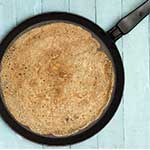

Gluten-Free Vegan Pancakes
Who says you have to give up pancakes?
Serve with fresh fruit or real maple syrup.
Breakfast Lunch Snack Main Dish Dash Flexitarian Mediterranean Mind Pescatarian Therapeutic Lifestyle Changes Vegan Vegetarian


Green Juice
Packed with healthy green vegetables and fruits with a light, refreshing taste.
Appetizer Breakfast Snack Drink Dash Flexitarian Fruitarian Mediterranean Mind Paleotarian Pescatarian Raw Therapeutic Lifestyle Changes Vegan Vegetarian


Green Smoothie Muffins
Combining the nutritional punch of a green smoothie with the comfort of a delicious, warm muffin, these green smoothie muffins are sure to be a hit in your home! They're packed with protein and spinach and balanced out with sweet bananas and just a little sugar to make you come back for more.
Breakfast Snack Dessert Flexitarian Mind Pescatarian Therapeutic Lifestyle Changes Vegan Vegetarian Gluten Soy


Grilled Lemon Herb Chicken
With a burst of flavor in every bite, this grilled lemon herb chicken is a sure crowd-pleaser. Tender and juicy with a tangy kick, it's perfect for any occasion.
Dinner Lunch Main Dish Mediterranean Mind Paleotarian Therapeutic Lifestyle Changes


Grilled Steak Salad
This classic salad will leave you wanting more!
Dinner Lunch Salad Dash Flexitarian Mediterranean Mind Paleotarian Therapeutic Lifestyle Changes


Guacamole 2
Here's another option for guacamole.
Appetizer Snack Salad Side Dish Dash Flexitarian Mediterranean Mind Paleotarian Pescatarian Raw Therapeutic Lifestyle Changes Vegan Vegetarian


Hail Caesar Dressing
Toss this with Romaine lettuce and your other Caesar salad favorites and turn this into a meal.
Snack Condiment Salad Dressing Dash Flexitarian Mediterranean Mind Paleotarian Pescatarian Raw Therapeutic Lifestyle Changes Vegan Vegetarian Soy Tree Nut


Harvard Beets
My grandma's recipe, and a great side dish filled with iron.
Appetizer Dinner Lunch Snack Condiment Salad Side Dish Dash Flexitarian Fruitarian Mediterranean Mind Pescatarian Raw Therapeutic Lifestyle Changes Vegetarian Dairy


Healthy Breakfast Ideas
Here are a few ideas for you to start your day right!
Breakfast Dash Flexitarian Mediterranean Mind Pescatarian Therapeutic Lifestyle Changes Vegetarian Gluten


Healthy Cookies
This is a no-mess, healthy finger food. No one will believe these delicious cookies are made with lentils.
Snack Dessert Flexitarian Pescatarian Vegetarian Dairy Gluten Tree Nut


Herb Wrapped Chevre
Goat cheese is often better digested than traditional cow's milk. Serve with kale chips, crackers, or sliced tomato.
Appetizer Snack Condiment Side Dish Spread/Sauce Dash Flexitarian Mediterranean Mind Pescatarian Therapeutic Lifestyle Changes Dairy


Homemade Applesauce
This is a great recipe to compliment any meat dish or even a fun dessert. My kids love to help make this.
Appetizer Snack Side Dish Dash Flexitarian Fruitarian Mediterranean Mind Paleotarian Pescatarian Raw Therapeutic Lifestyle Changes Vegan Vegetarian


Honey Mustard Dressing
Dressing is just the beginning for this delightful concoction What about using it as a marinade? Or a dip? Be creative
Dinner Lunch Salad Dressing Spread/Sauce Dash Flexitarian Mediterranean Mind Pescatarian Raw Therapeutic Lifestyle Changes Vegan Vegetarian
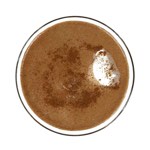

Iced Mocha Shake
Iced Mocha is an energizing blended shake with flavors of espresso, natural cocoa and creamy almond milk featuring NuMedica Power Greens Espresso and ImmunoG PRP Chocolate.
Breakfast Snack Drink Dash Flexitarian Mediterranean Mind Pescatarian Therapeutic Lifestyle Changes Vegetarian Gluten


Kale Chips
These kale chips are a great alternative to potato chips!
Snack Side Dish Dash Flexitarian Mediterranean Mind Paleotarian Pescatarian Raw Therapeutic Lifestyle Changes Vegan Vegetarian Soy


Keto Avocado Egg Salad
This Keto Avocado Egg Salad is a creamy, delicious lunch option high in healthy fats and protein. It's also quick and easy to make!
Dinner Lunch Main Dish Ketogenic Therapeutic Lifestyle Changes Dairy


Keto Turkey Chili
This delicious Keto Turkey Chili is a low carb favorite! Perfect for family dinners or for hosting small groups, it's healthy, flavorful, and satisfying.
Appetizer Dinner Lunch Main Dish Soup Ketogenic Flexitarian Mind Therapeutic Lifestyle Changes


Ketogenic Pizza
A delicious keto-friendly, gluten-free pizza loaded with healthy fats and protein. A perfect comfort food without the guilt to be shared with friends and family.
Appetizer Dinner Lunch Main Dish Ketogenic Flexitarian Therapeutic Lifestyle Changes Dairy
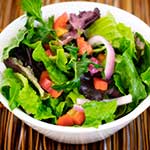

Leftover Greens Salad
This is much different than the leftovers I grew up with, but a great tasty alternative
Dinner Lunch Main Dish Salad Side Dish Dash Flexitarian Mediterranean Mind Pescatarian Therapeutic Lifestyle Changes Vegan Vegetarian Gluten


Lemon Chicken Salad
The lemon gives this chicken salad a zesty flavor without the added calories with mayo.
Appetizer Dinner Lunch Snack Main Dish Salad Side Dish Dash Flexitarian Mediterranean Paleotarian Therapeutic Lifestyle Changes


Lemon Poppy Seed Truffles
Who needs chocolate when you have lemon?
Appetizer Snack Dessert Dash Flexitarian Fruitarian Mediterranean Mind Paleotarian Pescatarian Raw Therapeutic Lifestyle Changes Vegan Vegetarian Dairy Gluten Soy Tree Nut


Lemon-Chive Potatoes
I started doing this as a more tasty alternate to mashed potatoes. It has such a zingy flavor and enjoyable with any meal.
Dinner Lunch Side Dish Dash Flexitarian Mediterranean Mind Pescatarian Therapeutic Lifestyle Changes Vegetarian Dairy


Libby's Brownies
A classic dish with a healthy twist.
Dessert Dash Flexitarian Mind Pescatarian Therapeutic Lifestyle Changes Vegan Vegetarian Dairy Gluten


Libby's Traditional Granola
Our neighborhood Christmas gift every year.
Breakfast Snack Dessert Side Dish Dash Flexitarian Mediterranean Mind Pescatarian Therapeutic Lifestyle Changes Vegetarian Dairy Gluten


Living Herbal Tea
A great tea that is both refreshing and delicious..
Snack Drink Dash Flexitarian Fruitarian Mediterranean Mind Paleotarian Pescatarian Raw Therapeutic Lifestyle Changes Vegan Vegetarian


Matt's Famous Green/Purple Smoothie
This classic smoothie tastes great and gives plenty of nutrition.
Breakfast Snack Drink Dash Flexitarian Fruitarian Mediterranean Mind Paleotarian Pescatarian Raw Therapeutic Lifestyle Changes Vegan Vegetarian


Muesli
RAW version of granola. Use steel cut Irish Oats to make it gluten free.
Breakfast Snack Main Dish Dash Flexitarian Mediterranean Mind Paleotarian Pescatarian Raw Therapeutic Lifestyle Changes Vegan Vegetarian Gluten Tree Nut


No Sugar Added Banana Bread
Not sure where to start changing your diet? Try skipping the sugar in this moist and delicious banana bread.
Appetizer Breakfast Snack Dessert Side Dish Dash Flexitarian Mediterranean Mind Pescatarian Therapeutic Lifestyle Changes Vegetarian Dairy Gluten


Nutrient-Rich Maple Pecan Pie with Oat Crust
Experience the warmth of the season with this Nutrient-Rich Maple Pecan Pie featuring a wholesome oat crust. This healthier version maintains the deliciousness of the classic holiday treat while offering added fiber and natural sweetness from maple syrup.
Dinner Lunch Dessert Flexitarian Pescatarian Therapeutic Lifestyle Changes Vegetarian Gluten
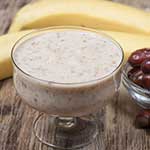

Nutty Monkey Smoothie
Breakfast Snack Dessert Drink Dash Flexitarian Fruitarian Mediterranean Mind Paleotarian Pescatarian Raw Therapeutic Lifestyle Changes Vegan Vegetarian


Old Fashioned Lemonade
Want an original lemonade recipe? This contains no artificial sweetener, and is fresh!
Snack Drink Dash Flexitarian Fruitarian Paleotarian Pescatarian Raw Therapeutic Lifestyle Changes Vegan Vegetarian


One Pot Chicken and Spinach Skillet
Quick and easy to make, this One Pot Chicken and Spinach Skillet is a delicious, keto-friendly meal full of protein and iron. Low carb and full of flavor, it's sure to be a new staple in your home!
Dinner Lunch Main Dish Ketogenic Flexitarian Mediterranean Mind Paleotarian Therapeutic Lifestyle Changes Dairy


Orange Parsley Smoothie
A great-tasting smoothie.
Breakfast Drink Dash Flexitarian Fruitarian Mediterranean Mind Paleotarian Pescatarian Raw Therapeutic Lifestyle Changes Vegan Vegetarian


Peachaloupe Smoothie
Refreshing and nourishing any time of day.
Breakfast Snack Drink Dash Flexitarian Fruitarian Mediterranean Mind Paleotarian Pescatarian Raw Therapeutic Lifestyle Changes Vegan Vegetarian


Peppermint Water
You can infuse any herb, fruit or veggie into water. Peppermint is my favorite, however.
Drink Dash Flexitarian Fruitarian Mediterranean Mind Paleotarian Pescatarian Raw Therapeutic Lifestyle Changes Vegan Vegetarian


Pesto Vinaigrette
Perfect with Roman lettuce or other crisp greens.
Appetizer Dinner Lunch Salad Dressing Spread/Sauce Dash Flexitarian Fruitarian Mediterranean Mind Paleotarian Pescatarian Raw Therapeutic Lifestyle Changes Vegan Vegetarian Tree Nut


Pico de Gallo
Let the Fiesta begin!
Appetizer Snack Condiment Spread/Sauce Dash Flexitarian Mediterranean Mind Paleotarian Pescatarian Raw Therapeutic Lifestyle Changes Vegan Vegetarian


Pina Colada Smoothie
We use this for our popcorn and smoothie night as our dinner. Get your favorite movie or board game and this breakfast becomes a fabulous dinner.
Breakfast Dinner Drink Dash Flexitarian Mediterranean Mind Paleotarian Pescatarian Raw Therapeutic Lifestyle Changes Vegan Vegetarian


Pre-Load Green Smoothie
This is a simple-to-make great starter "healthy greens" drink that will give you the nutrients you need!
Appetizer Breakfast Dinner Lunch Snack Drink Dash Flexitarian Fruitarian Mediterranean Mind Paleotarian Pescatarian Raw Therapeutic Lifestyle Changes Vegan Vegetarian


Pumpkin Bread with Wheat Flour & Low Sugar
Great fall treat with some poached eggs or cream cheese.
Breakfast Snack Dessert Dash Flexitarian Mediterranean Mind Pescatarian Therapeutic Lifestyle Changes Vegetarian Dairy Gluten


Pumpkin Lentil Curry
This Pumpkin Lentil Curry is packed with flavor and full of nutrients! It has become a staple in our family dinners, a hit with our guests, and it's warm and creamy for the perfect night in!
Dinner Lunch Main Dish Soup Flexitarian Mediterranean Paleotarian Pescatarian Therapeutic Lifestyle Changes Vegan Vegetarian


Pumpkin Pie Smoothie
Don't miss out on your favorite flavor of the fall. This simple and spicy smoothie will gratify your desire for an awesome pumpkin pie spice, without all of the empty calories!
Breakfast Snack Drink Dash Flexitarian Fruitarian Mediterranean Mind Paleotarian Pescatarian Raw Therapeutic Lifestyle Changes Vegan Vegetarian


Quick and Easy Energy Balls
Get your day started right Use steel cut Irish Oats for gluten free living.
Breakfast Snack Side Dish Dash Flexitarian Mediterranean Mind Paleotarian Pescatarian Raw Therapeutic Lifestyle Changes Vegan Vegetarian Gluten Tree Nut


Quinoa Peanut Crunch Bars
These Quinoa Peanut Crunch Bars are packed with protein and make a simple snack into a daily delight! Simple and quick to make, they're sure to leave you feeling satisfied and energized.
Breakfast Snack Dessert Flexitarian Mind Paleotarian Pescatarian Peanut


Raw Brownies
And to think, you didn't think brownies could get any better...
Snack Dessert Dash Flexitarian Pescatarian Raw Therapeutic Lifestyle Changes Vegan Vegetarian Tree Nut


Raw Chocolate
This icing is AMAZING on the RAW brownies!
Snack Dessert Dash Flexitarian Mediterranean Mind Pescatarian Raw Therapeutic Lifestyle Changes Vegan Vegetarian


Raw Nori Roll Spread
This makes for a great snack!
Appetizer Snack Spread/Sauce Dash Flexitarian Mediterranean Mind Pescatarian Raw Therapeutic Lifestyle Changes Vegan Vegetarian


Red Hot Tomato Soup
RAW soup that will tickle your tastebuds, spicey and wonderful.
Snack Soup Dash Flexitarian Mediterranean Mind Pescatarian Raw Therapeutic Lifestyle Changes Vegan Vegetarian


Rice Paper Spring Rolls with Shrimp
Fresh shrimp and crisp veggies, wrapped in soft rice paper and served with a tangy peanut sauce. The perfect healthy and delicious meal this summer with family and friends!
Appetizer Dinner Lunch Snack Main Dish Side Dish Flexitarian Mediterranean Mind Paleotarian Pescatarian Raw Therapeutic Lifestyle Changes Vegan Vegetarian Peanut Shellfish Soy
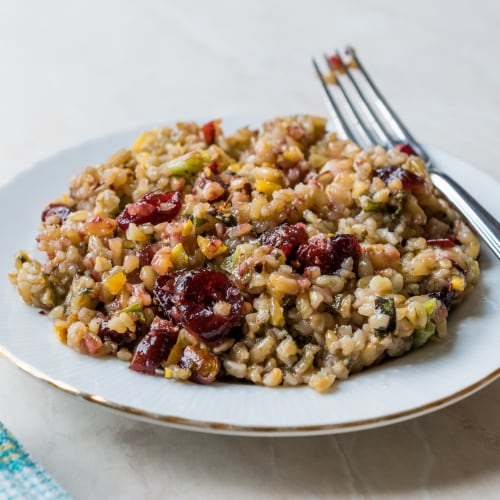

Roasted Turkey with Cranberry Quinoa Stuffing
This healthier Roasted Turkey with Cranberry Quinoa Stuffing is a nutritious twist on the classic holiday entree. Packed with lean protein and whole grains, it's a guilt-free centerpiece for your festive table.
Dinner Lunch Main Dish Side Dish Flexitarian Mediterranean Mind Therapeutic Lifestyle Changes


Rosemary Marinade for Fish, Chicken, or Veggies
This marinade adds a great flavor to any meat dish!
Dinner Lunch Condiment Main Dish Salad Dressing Spread/Sauce Dash Flexitarian Mediterranean Mind Pescatarian Raw Therapeutic Lifestyle Changes Vegan Vegetarian


Sara's Favorite Tomato Soup
This tomato soup brings so many things to the table, including many wonderful anti oxidants.
Dinner Lunch Soup Dash Flexitarian Mediterranean Mind Paleotarian Pescatarian Raw Therapeutic Lifestyle Changes Vegan Vegetarian


Simple and Nutritious Green Smoothie
This 5-ingredient, Simple and Nutritious Green Smoothie packs in a ton of nutrients into one glass. Perfect for a hot summer day, or a healthy snack on-the-go, it's a delicious option in only 5 minutes!
Breakfast Snack Drink Flexitarian Fruitarian Mediterranean Mind Pescatarian Raw Therapeutic Lifestyle Changes Vegan Vegetarian


Simple Kale Salad
Learning to love kale can have lots of wonderful health benefits.
Snack Salad Side Dish Dash Flexitarian Fruitarian Mediterranean Mind Paleotarian Pescatarian Raw Therapeutic Lifestyle Changes Vegan Vegetarian


Smokey Cheese Dip
Try this alternative for your next party.
Appetizer Snack Side Dish Spread/Sauce Dash Ketogenic Flexitarian Mediterranean Mind Pescatarian Raw Therapeutic Lifestyle Changes Vegan Vegetarian
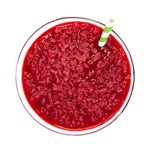

Smooth Beets Shake
Smooth Beets is a bright and refreshing blended shake with beet, carrot and ginger featuring NuMedica Fiber Factors and Liposomal Curcumin.
Breakfast Snack Drink Dash Flexitarian Mediterranean Mind Pescatarian Therapeutic Lifestyle Changes Vegetarian Gluten


South American Beef Marinade
This marinade makes beef tender and succulent. Use for 24 hours before baking or grilling for best results.
Dinner Lunch Condiment Salad Salad Dressing Spread/Sauce Dash Flexitarian Mediterranean Mind Pescatarian Therapeutic Lifestyle Changes Vegan Vegetarian


Spelt Chocolate Cupcakes
This is a healthy twist on a classic cake.
Snack Dessert Dash Flexitarian Pescatarian Therapeutic Lifestyle Changes Vegan Vegetarian Gluten


Spinach and Artichoke Stuffed Mushrooms
These Lightened-Up Spinach and Artichoke Stuffed Mushrooms offer a healthier twist on the classic appetizer. Filled with nutrient-packed ingredients, they're a delightful and guilt-free start to your holiday gathering.
Appetizer Side Dish Flexitarian Mediterranean Mind Paleotarian Pescatarian Therapeutic Lifestyle Changes Vegetarian Dairy


Spinach Chicken Salad
I love bringing this healthy salad to parties. For even better health options, try using gluten free bowtie pasta.
Appetizer Dinner Lunch Snack Main Dish Salad Side Dish Dash Flexitarian Mediterranean Mind Paleotarian Therapeutic Lifestyle Changes Dairy


Spinach Mushroom Quiche
This Spinach Mushroom Quiche is a breakfast favorite in our home! It's filling, nutritious, and tasty with delicious wild mushrooms, veggies, and just a little cheese to keep you coming back for more.
Appetizer Breakfast Snack Main Dish Side Dish Flexitarian Mediterranean Mind Pescatarian Therapeutic Lifestyle Changes Vegetarian Dairy


Strawberry Sauce
Try this on your pancakes or cheesecake
Breakfast Snack Condiment Dessert Spread/Sauce Dash Flexitarian Fruitarian Mediterranean Mind Paleotarian Pescatarian Raw Therapeutic Lifestyle Changes Vegan Vegetarian


Summer Gazpacho
This Summer Gazpacho is a quick and nutritious soup for the warmer seasons. Featuring many flavorful veggies and served at a cool temperature, it's sure to help you bring down that summer heat and leave you feeling satisfied!
Dinner Lunch Main Dish Soup Flexitarian Mediterranean Mind Paleotarian Pescatarian Raw Therapeutic Lifestyle Changes Vegan Vegetarian
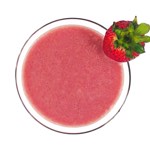

Summer Paradise Shake
Summer Paradise is a mouthwatering blended shake with flavors of strawberry, kiwi, pineapple, coconut and citrus featuring NuMedica GlutaMed, Liposomal Vitamin C and Power Reds Strawberry-Kiwi.
Breakfast Snack Drink Dash Flexitarian Mediterranean Mind Pescatarian Raw Therapeutic Lifestyle Changes Vegetarian Gluten


Summer Salad with Dressing and Feta
This summer salad, packed with feel-good ingredients and tons of flavor, will be the hit dish among your family and friends this spring and summer! With little preparation time, it's an easy staple recipe for the coming months.
Appetizer Lunch Salad Salad Dressing Side Dish Flexitarian Mediterranean Pescatarian Raw Therapeutic Lifestyle Changes Vegetarian Dairy


Sun Dried Marinara Sauce
This delicious sauce goes great with pasta or home made pizza.
Appetizer Dinner Lunch Condiment Main Dish Side Dish Spread/Sauce Dash Flexitarian Mediterranean Mind Pescatarian Raw Therapeutic Lifestyle Changes Vegan Vegetarian


Sunny Carrot Walnut Taco Meat
This is a huge success every time it's served.
Appetizer Dinner Lunch Snack Main Dish Salad Side Dish Dash Flexitarian Mediterranean Mind Paleotarian Pescatarian Raw Therapeutic Lifestyle Changes Vegan Vegetarian Tree Nut


Super Chocolate Milk
This is the best chocolate milk around.
Breakfast Snack Drink Dash Flexitarian Fruitarian Mediterranean Mind Paleotarian Pescatarian Raw Therapeutic Lifestyle Changes Vegan Vegetarian


Sweet Greens Smoothie
A great way to eat your greens.
Breakfast Snack Dessert Drink Dash Flexitarian Fruitarian Mediterranean Mind Paleotarian Pescatarian Raw Therapeutic Lifestyle Changes Vegan Vegetarian


Sweet Mint Drink
Sweet Mint is a fresh, shaken drink with mint and lime featuring NuMedica Power Greens Mint and Reset Path Support Formula.
Breakfast Snack Drink Dash Flexitarian Mediterranean Mind Pescatarian Therapeutic Lifestyle Changes Vegetarian


Sweet Potato Pie Filling
Raw and vegan and very yummy.
Dessert Dash Flexitarian Paleotarian Pescatarian Raw Therapeutic Lifestyle Changes Vegan Vegetarian


Tex-Mex Salad
This is a wonderful salad that can be used as main dish, side dish, or party take along.
Main Dish Salad Side Dish Dash Flexitarian Mediterranean Mind Therapeutic Lifestyle Changes Dairy


Vegan Ranch Dressing
This ranch dressing leaves all the trans fats behind, and instead contributes healthy fats and great anti-oxidents. Plus it tastes wonderful
Dinner Lunch Salad Salad Dressing Spread/Sauce Dash Flexitarian Mediterranean Mind Pescatarian Raw Therapeutic Lifestyle Changes Vegan Vegetarian Tree Nut


Vegetable Beef Soup
Tastes like home
Dinner Lunch Soup Dash Mediterranean Mind Therapeutic Lifestyle Changes


Warm Miso Soup
Asian soup never tasted better.
Appetizer Dinner Lunch Soup Dash Flexitarian Mediterranean Mind Pescatarian Therapeutic Lifestyle Changes Vegan Vegetarian Soy


Watermelon Smoothie
A classic smoothie that tastes great.
Breakfast Snack Drink Dash Flexitarian Fruitarian Mediterranean Mind Paleotarian Pescatarian Raw Therapeutic Lifestyle Changes Vegan Vegetarian


Zucchini Marinara Pasta
Gluten free and light for any summer evening If you don't have a spirooli, you can also use this marinara on gluten free or regular spaghetti noodles.
Dinner Lunch Main Dish Salad Dash Flexitarian Mediterranean Mind Pescatarian Raw Therapeutic Lifestyle Changes Vegan Vegetarian
Dash
DASH (Dietary Approaches to Stop Hypertension) is a diet designed to reduce and prevent hypertension. The diet emphasizes increasing the intake of potassium, calcium, and magnesium to manage blood pressure better. Limited foods include those high in sodium, saturated fat, and added sugar. DASH recommends fat-free and low-fat dairy products, fish, poultry, beans, and nuts. DASH may provide some benefits in weight loss and reducing the risk of certain chronic health conditions.
Ketogenic
The ketogenic diet is a low-carb and high-fat diet often used in managing specific medical issues, such as epilepsy in children. The body must rely on fat intake from the diet to replace carbohydrates by burning fat for energy instead. The significant reduction of carbs puts your body into a state called ketosis when the body becomes incredibly efficient at burning its existing fat. Incorporating some of the principles of a ketogenic diet may provide certain health benefits, including weight loss and lowering the risk for certain chronic diseases, though health experts warn of potential nutrient deficiencies.
Flexitarian
The flexitarian diet plays on words: flexible and vegetarian. It is a diet rooted in plant-forward vegetarianism with less strict guidelines than vegetarianism. Dairy and eggs are allowed, as well as meat on occasion, though they should not be the main staples of the diet. The guidelines for flexitarianism are not specifically defined, as some may choose to eliminate meat on a specific number of days per week, meals per day, or generally reduce consumption without tracking. As with any plant-forward diet, advantages may include help with weight loss and reducing the risks of certain chronic health conditions.
Fruitarian
Fruitarian is a severely restrictive vegan diet that excludes all animal products, including dairy, and consists mainly of raw fruits. Vegetables, nuts, and seeds are allowed in moderation, though they should remain entirely uncooked and unprocessed. Incorporating some principles of fruitarianism can increase your antioxidant and nutrient intake, possibly providing help in losing weight and reducing the risk of certain chronic diseases. However, the fruitarian diet as a whole does not cover all your nutrient needs, including lacking protein, iron, calcium, vitamins B and D, zinc, and omega-3 fatty acids.
Mediterranean
The Mediterranean diet is inspired by the historical eating habits of people living near the Mediterranean Sea, such as in Greece and Italy. The emphasis is on plant-based foods, like whole grains, vegetables, legumes, fruits, nuts, seeds, herbs, spices, and fresh fish. Avoid processed red meats, refined grains, heavily processed foods, butter, and refined/processed/hydrogenated oils.
Mind
MIND stands for “Mediterranean-DASH Intervention for Neurodegenerative Delay.” It combines two popular diets: the Mediterranean and DASH diets. The MIND diet may help to reduce your risk of certain neurodegenerative and other chronic conditions. This diet is designed to maximize benefits to your neurological health. Rather than specific guidelines, the MIND diet lists ten recommended foods and 5 to limit.
Paleotarian
The paleotarian, or “paleo,” diet is based on eating the same foods in modern times as would’ve been eaten during the paleolithic area, which ended 10,000 years ago. A modern paleo diet would consist of fruits, vegetables, lean meats, fish, eggs, nuts, and seeds. Foods that would’ve been cultivated through small-scale farming would not be included in the diet, including grains, legumes, and dairy products. The purpose behind the paleo diet is based on the idea that our genes are not well adjusted for the modern diets that developed out of farming, potentially introducing dietary changes that outpaced the human body’s ability to adapt. Farming changed our diets, as well as the diets of the animals people ate.
Pescatarian
Pescetarianism is a vegetarian diet that adds fish and seafood, providing all the benefits of a plant-based vegetarian diet and the nutritional benefits of seafood. Pescetarianism is also a good way to practice a well-balanced diet while reducing environmental impact. The diet primarily consists of whole grains, nuts, legumes, produce and healthy fats, and seafood. Pescatarians often continue to eat eggs and dairy as well. The pescatarian diet is a well-balanced, nutrient-dense diet that may help in weight loss and other chronic health conditions.
Raw
The raw food diet, or raw veganism, involves consuming mostly raw foods. Foods cannot be cooked, refined, pasteurized, processed, or treated with pesticides. Some acceptable preparation methods include juicing, blending, dehydrating, and soaking. Supplement usage is not permitted by the diet, as its proponents claim the diet will meet all necessary nutrient needs. Proponents also claim that a variety of healthy enzymes denatured (nullified) through the cooking process, reducing their nutrient content. While the raw food diet may provide some benefits, such as weight loss, health experts warn of negative health consequences related to the diet.
Therapeutic Lifestyle Changes
Therapeutic lifestyle changes (TLC) is a 3 part program developed by the National Heart, Lung, and Blood Institute and includes a diet low in saturated fat, trans fat, and dietary cholesterol. TLC aims to improve cholesterol numbers by combining dietary changes, physical activity, and other means of weight management. It is also recommended to reduce and eliminate smoking and high blood pressure. TLC recommends whole grains, nuts, legumes, oils, and soluble fiber found in fruits, beans, and oats.
Vegan
The vegan diet is among the most popular for weight loss, chronic disease risk reduction, and ethical and environmental reasons. A vegan diet is a primarily plant-based diet, which with proper research and variety, can provide your nutritional needs; however, experts caution practitioners about potential nutrient deficiencies. A primary driver in many people becoming vegan is an ethical draw away from animal exploitation and cruelty or concerns about the environmental impact of factory farming. There are many varieties of vegan diets, ranging from fully raw vegan to processed, junk food vegan. Depending on the style of veganism you adhere to, there may be potential health benefits in weight loss and reducing the risk and severity of some chronic conditions.
Vegetarian
Vegetarianism is a diet that eliminates meat, fish, and poultry from your eating habits. Some vegetarians also abstain from consuming eggs, dairy, and other animal products. Practitioners may adopt a vegetarian diet for health, environmental, or ethical reasons. Vegetarianism may help lose weight and prevent certain chronic health conditions. The diet also aims to reduce participation in industries involved in animal cruelty and climate change contributions. As with veganism, there are various ways to be vegetarian, with varying health benefits depending on the style’s nutrient density.
| Diet Type | Pros | Cons |
|---|---|---|
| Dash |
|
|
| Ketogenic |
|
|
| Flextarian |
|
|
| Fruitarian |
|
|
| Mediterranean |
|
|
| Mind |
|
|
| Paleotarian |
|
|
| Pescatarian |
|
|
| Raw |
|
|
| Therapeutic Lifestyle Changes |
|
|
| Vegan |
|
|
| Vegetarian |
|
|
Caffeine
Caffeine sensitivity is experienced when your body overreacts to caffeinated beverages, such as coffee. Symptoms include jitteriness, headaches, digestional issues, and insomnia. While some people may experience these symptoms with excess consumption of caffeinated beverages, caffeine sensitivity occurs in smaller doses that otherwise would not cause adverse effects in most individuals. However, caffeine sensitivity differs from a caffeine allergy, which involves an immune response to caffeine.
Dairy
Dairy sensitivity, often known as lactose intolerance, occurs when the body cannot fully digest the sugar (lactose) in milk. Symptoms include gas, bloating, and diarrhea after consuming dairy products. Dairy sensitivity is due to your body not producing enough of an enzyme called lactase, which breaks down lactose. Lactose intolerance can be managed with dietary changes to avoid foods high in lactose and specific medications to ease the digestive process following dairy consumption.
Gluten
Gluten sensitivity occurs when your body has an adverse reaction to eating gluten, resulting in symptoms like abdominal pain, bloating, gassiness, and drowsiness. Your healthcare provider my diagnoser Gluten sensitivity after following a testing regime over a few weeks. After excluding wheat allergy or celiac disease, your healthcare provider will recommend you adopt a gluten-free diet.
Peanut
Peanut intolerance is not the same as a peanut allergy. Peanut sensitivity is rooted in a digestive issue within the body rather than resulting in an immune response. A peanut sensitivity will produce an inflammatory response to proteins within peanuts, resulting in abdominal discomfort. It is caught less often than peanut allergies and can be tested by taking a food sensitivity test through your healthcare provider.
Shellfish
Shellfish sensitivity occurs when the body does not produce the appropriate enzymes necessary to break down the proteins in shellfish, resulting in an inflammatory response up to 72 hours after consumption. Symptoms may include abdominal pain, bloating, nausea, and diarrhea. A food sensitivity test can test shellfish sensitivities through your healthcare provider.
Sesame
Sesame sensitivity occurs when the body produces a digestive response to sesame consumption, resulting in various adverse symptoms, including rashes, abdominal pain, nausea, and diarrhea. Sufferers should avoid sesame seeds, tahini, and sesame oil. A food sensitivity test can test sesame sensitivities through your healthcare provider.
Tree Nut
Tree nut sensitivity occurs when the body produces a digestive response to tree nut consumption, resulting in various adverse symptoms, including bloating, nausea, and diarrhea. Sufferers should avoid pistachios, hazelnuts, pecans, pinenuts, chestnuts, brazil nuts, cashews, and macadamia nuts. A food sensitivity test can test tree nut sensitivities through your healthcare provider.
Soy
Soy sensitivity occurs when the body produces a digestive response to tree nut consumption, resulting in various adverse symptoms, including oral itching, abdominal pain, headaches, itchy eyes, and nasal congestion, among other symptoms. Some food sufferers should avoid thickening agents and stabilizers, lecithin, xanthan and guar gum, vegetable oil or shortening, vegetable starch, and broths. A food sensitivity test can test soy sensitivities through your healthcare provider.
![]() Session Expired from Inactivity
Session Expired from Inactivity
Do you want to?
9618 Jefferson Highway, Suite D-191
Baton Rouge LA 70809-9636
(888) 424-0032 |
support@supplementrelief.com
* Disclaimer: This page is available exclusively for SupplementRelief.com clients. None of the information on this website is intended to replace your relationship with your healthcare provider(s). Nothing should be considered medical advice. The information, knowledge, and experience shared on this website are the opinions of SupplementRelief.com. This site and its content are intended to enhance your knowledge base as YOU MAKE YOUR OWN HEALTHCARE DECISIONS in partnership with your qualified health professional.
* These statements have not been evaluated by the Food and Drug Administration. These products and services are not intended to diagnose, treat, cure, or prevent disease.
* There is NO GUARANTEE OF SPECIFIC RESULTS for the products or services offered, and the RESULTS CAN VARY for each individual. Any results claimed by our customers are based on individual experiences that are unique and cannot be guaranteed.
FirstFitness Nutrition and NuMedica may be promoted and sold on the internet ONLY by Authorized Resellers who have been approved by and have registered their website domain with these companies. They strictly prohibit, and actively monitor, the UNAUTHORIZED SALE or RESALE of their products in ALL online public shopping portals including Amazon, eBay, and others and into other countries. All products purchased in SupplementRelief.com are for PERSONAL USE ONLY and CANNOT BE RESOLD to others. Please report violations of Reseller Policy directly to FirstFitness Nutrition at 800.621.4348 and to NuMedica at 800.869.8100.
The content and photographs on this website are copyrighted or Licensed Material and may not be downloaded for other than personal use. Republication, retransmission, reproduction, or any other use of the content or photographs is prohibited. ©2010-2024 SupplementRelief.com.
Are you sure you want to remove this item?

